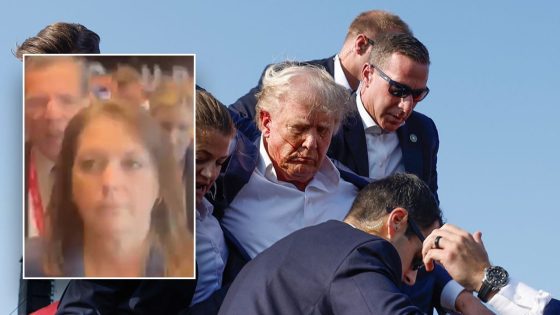By Nidal al-Mughrabi and Emily Rose
CAIRO/JERUSALEM (Reuters) -Israel’s tanks pushed into the heart of Jabalia in northern Gaza on Thursday, facing anti-tank rockets and mortar bombs from militants concentrated there, while in the south, its forces pounded Rafah without advancing, Palestinian residents and militants said.
The slow progress of Israel’s offensive, more than seven months after it was prompted by Hamas’ deadly cross-border raid, highlighted the difficulty of achieving Prime Minister Benjamin Netanyahu’s aim of eradicating the militant group.
Armed wings of Hamas and its ally Islamic Jihad have been able to fight up and down the Gaza Strip, using heavily fortified tunnels to stage attacks in both the north – the focus of Israel’s initial invasion – and new battlegrounds like Rafah.
“We are wearing Hamas down,” Israeli Defence Minister Yoav Gallant said, announcing that more troops would be deployed in Rafah, where he said several tunnels had been destroyed.
Senior Hamas official Sami Abu Zuhri responded that the group would defend its people “by all means”.
Israel says four Hamas battalions are now in Rafah along with hostages abducted during the Oct. 7 assault, but it faces international pressure not to invade the city, where hundreds of thousands of displaced Palestinian civilians are sheltering.
South Africa asked the top U.N. court to order a halt to Israel’s Rafah offensive, saying it was “part of the endgame in which Gaza is utterly destroyed”. Israel has denied South African allegations of genocide in Gaza and said it had complied with an earlier court order to step up aid.
The Gaza death toll has risen to 35,272, health officials in the Hamas-run coastal enclave said, and malnutrition is widespread with international aid efforts blocked by the violence and Israel’s de-facto shutdowns of its Kerem Shalom crossing and the Rafah border crossing with Egypt.
Israel says Hamas is diverting aid and it needs to eliminate the organisation for its own protection after the deaths of 1,200 people on Oct. 7, and to free the 128 hostages still held out of 253 abducted by the militants, according to its tallies.
FLOATING PIER ANCHORED, BUT AID PLANS UNCLEAR
The United States anchored a temporary floating pier to a beach in Gaza on Thursday to boost aid deliveries, but it was still unclear how it would be distributed given the challenges that have beset the United Nations and relief groups for months.
The United Nations stressed that delivering aid by land is the “most viable, effective and efficient” method.
“To stave off the horrors of famine, we must use the fastest and most obvious route to reach the people of Gaza – and for that, we need access by land now,” deputy U.N. spokesperson Farhan Haq said.
Israel’s military says its operation in Rafah is meant to kill Hamas fighters and dismantle infrastructure used by the group, which governs the blockaded Palestinian territory. Israel accuses Hamas of diverting aid, something it denies.
Egyptian sources said Cairo, which fears a mass exodus from Gaza to Egypt, had rejected an Israeli request to coordinate on the reopening of the Rafah border crossing, which Israel seized on May 7, and keep it beyond Palestinian control.
Ceasefire and hostage release talks are deadlocked over how to end the war.
Hamas chief Ismail Haniyeh said his group, which has run Gaza since 2007, should continue to have a role while the Palestinian Authority, which Western leaders want to oversee Gaza, said it did not have enough funds to fulfil its current limited governing role in the Israeli-occupied West Bank.
President Abdel Fattah el-Sisi of Egypt, mediating between the warring sides in Gaza along with Qatar and the United States, said Israel was evading efforts to reach a ceasefire.
“Those who think that security and military solutions are able to secure interests or achieve security (are) delusional,” Sisi told a summit of Arab leaders, who agreed to press for Palestinian statehood alongside Israel to secure lasting peace.
Israel declared major operations over in northern Gaza months ago while pledging to return to prevent Hamas regrouping.
On Thursday, around a week after they moved back in, Israeli tanks were heavily bombarding the main market in the heart of Jabalia, a decades-old refugee camp, and several stores there caught fire, residents and Hamas media outlets said.
HAMAS SAYS IT DESTROYED ISRAELI TROOP CARRIER
Earlier, the armed wing of Hamas said its fighters in Jabalia had destroyed an Israeli troop carrier with a locally made Al-Yassin 105 anti-tank rocket, causing casualties. Reuters was not immediately able to verify the statement and there was no immediate comment from Israel.
“They are bombing like crazy, destroying the houses and the main market in the camp,” one of the camp’s residents told Reuters via a chat app.
Residents said tanks had also pushed back to near the entrance to the nearby northern city of Beit Hanoun and Israeli bulldozers were demolishing factories and property in the area.
Among those killed were a Palestinian journalist, Mahmoud Jahjouh, his family, medics and fellow journalists said.
Israel says it has eliminated many gunmen in Jabalia but had no new comment on developments there on Thursday.
In the southern tip of Gaza, tanks held their positions in eastern neighbourhoods and outskirts of Rafah while keeping up pressure with aerial and ground bombardments.
Medics said one Israeli tank shell had landed in a square deep inside Rafah, killing one Palestinian and wounding others, while residents said clusters of homes on the edge of the city were blown up by the army after evacuation orders.
Israel said its strikes were targeted at militants.
“We’re operating … where we know Hamas terrorists are hiding, and where we think we can find either tunnel shafts or terror infrastructure or ammunition of many types,” military spokesperson Lt. Col. Nadav Shoshani said.
(Reporting by Nidal al-Mughrabi in Cairo, Ari Rabinovitch and Emily Rose in Jerusalem, Laila Bassam and Nadine Adwalla; writing by Philippa Fletcher and Alexandra Hudson; editing by Ros Russell and Nick Macfie)
Source Agencies


